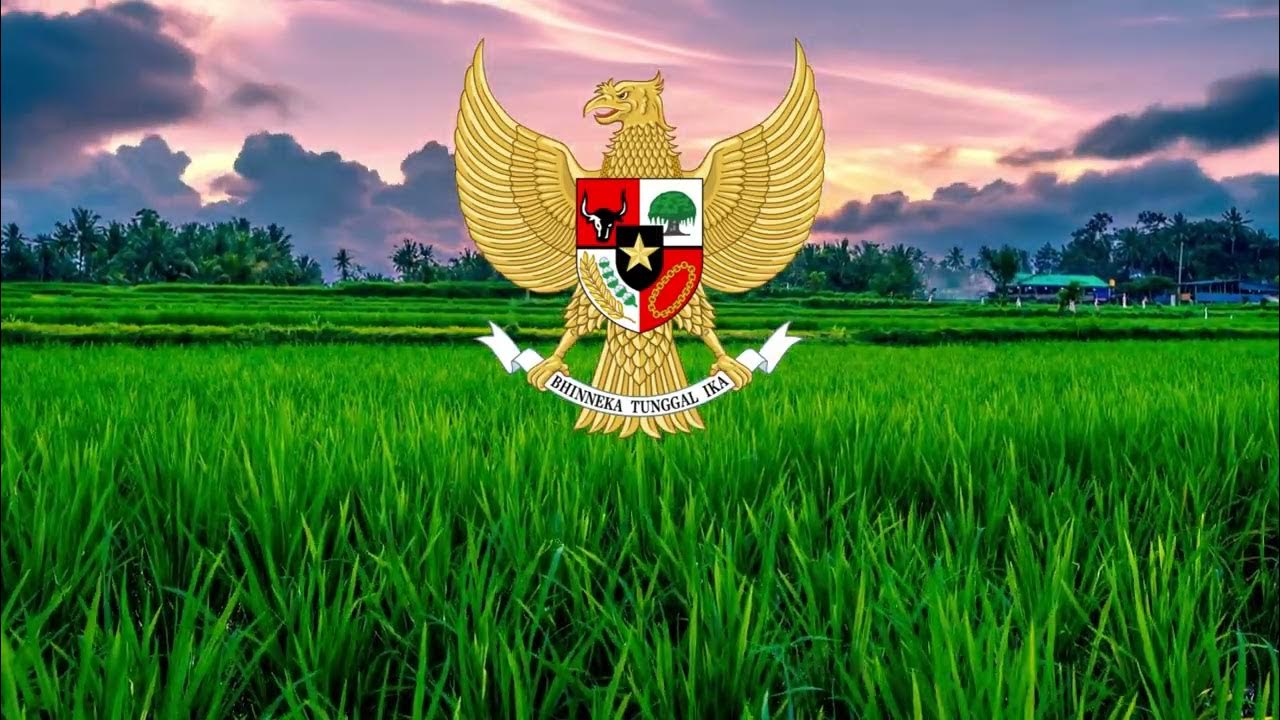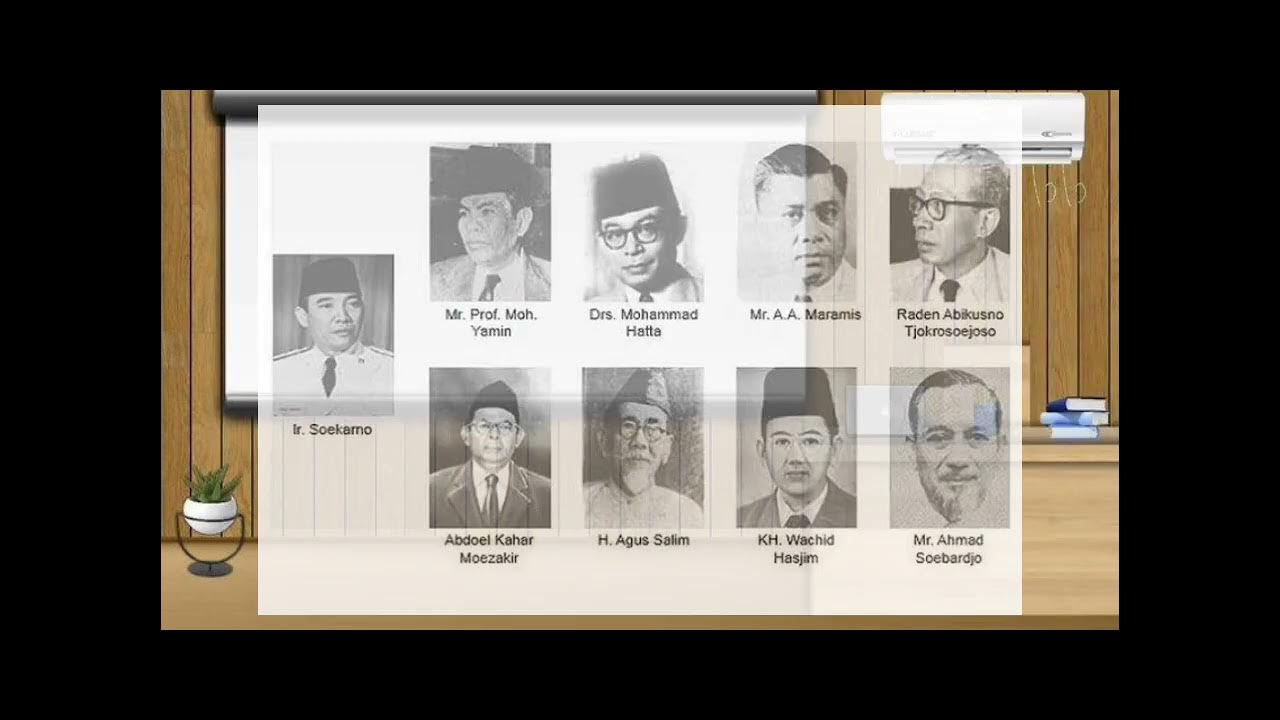Materi PPKn Kelas 10 - Gagasan gagasan Para Pendiri Bangsa Bab 1
Summary
TLDRThe video script discusses the foundational ideas of Indonesia's state, as proposed by the nation's founders during the BPUPKI sessions in 1945. Focus is given to Soekarno's pivotal speech on June 1, 1945, where he introduced Pancasila, a set of five guiding principles for an independent Indonesia. These principles include nationality, internationalism, democracy, social welfare, and belief in God. Soekarno emphasized unity, justice, and moral governance as essential to the nation's future, stressing that independence was just the beginning of Indonesia's ongoing struggle to realize its ideals.
Takeaways
- 😀 The video discusses the ideas of Indonesia's founding fathers about the basis of the state, focusing on the Pancasila Education and its relevance for grade 10 students.
- 😀 The discussion in the BPU PKI session from May 29 to June 1, 1945, revolved around the question of what the basis for an independent Indonesian state should be.
- 😀 Rajiman Wedo Diningrat, the chairman of BPU PKI, raised the main question about the foundation of the Indonesian state, prompting extensive discussions.
- 😀 The atmosphere in the BPU PKI was relatively free from Japanese interference, allowing members to openly express their ideas and thoughts.
- 😀 Despite various views being expressed, the members avoided fully answering the question on the basis of the state to avoid prolonged debates.
- 😀 Muhammad Yamin proposed three basic principles for the Indonesian state: deliberation, representative consensus, and rationalism, without specifically addressing the state’s foundation.
- 😀 Muhammad Hatta emphasized the separation of religious affairs from state affairs, highlighting the divine basis of the state.
- 😀 Soekarno was the only one to provide a complete answer to the question, offering a comprehensive speech on June 1, 1945, about the state’s foundation.
- 😀 Soekarno’s proposed basis for the Indonesian state, which became Pancasila, included principles such as nationalism, internationalism, consensus, social welfare, and belief in God.
- 😀 The word Pancasila, derived from two Sanskrit words 'Panca' (five) and 'Sila' (principles), encapsulated the five guiding principles for the newly formed state of Indonesia.
Q & A
What is the main topic of discussion in the Pancasila Education script?
-The main topic is the ideas of the nation's founders regarding the basis of the state, particularly during the BPUPKI sessions, which discuss the foundation of an independent Indonesia.
What was the role of the BPUPKI session in May 1945?
-The BPUPKI session from May 29 to June 1, 1945, was a forum where members openly discussed and expressed ideas regarding the foundation of the Indonesian state, with a particular focus on determining its basic principles.
How did the atmosphere at the BPUPKI session affect the discussions?
-The atmosphere at the BPUPKI session was relatively free from interference or pressure from Japanese authorities, allowing members to express their ideas openly and without fear of restrictions.
Why did some members of BPUPKI hesitate to answer the question regarding the basis of the state?
-Some members, including Muhammad Hatta, hesitated to provide a clear answer to the question about the basis of the state, fearing that their answers would not be accepted by all members and could lead to prolonged debates.
What were the main principles proposed by Muhammad Yamin in the BPUPKI session?
-Muhammad Yamin proposed three main principles: deliberation, representative consensus, and rationalism, but he did not directly provide a clear answer to the question of the state's basis.
How did Soekarno respond to the question about the basis of the state in the BPUPKI session?
-Soekarno provided a complete and comprehensive answer in his speech on June 1, 1945. He proposed Pancasila as the foundation for the independent Indonesian state, emphasizing principles like nationality, internationalism, democracy, social welfare, and belief in God.
What does the term 'Pancasila' mean?
-'Pancasila' comes from two Sanskrit words: 'Panca,' meaning five, and 'Sila,' meaning principle. It represents the five key principles proposed by Soekarno as the foundation for the Indonesian state.
What was the significance of Soekarno's speech on June 1, 1945?
-Soekarno's speech on June 1, 1945 was significant because it provided a clear and detailed answer to the question of the state's foundation, proposing Pancasila and explaining the core values of nationality, internationalism, democracy, social welfare, and belief in God.
What did Soekarno emphasize about the future struggles of Indonesia after gaining independence?
-Soekarno emphasized that achieving independence was not the end of Indonesia's struggle. The real challenge was realizing the ideals and aspirations of the people during the post-independence period, which required determination and the willingness to face challenges.
What does Soekarno mean by the principle of 'social welfare' in Pancasila?
-Soekarno's principle of 'social welfare' in Pancasila refers to the idea that the Indonesian state must aim for a welfare system that benefits all its people fairly, not just certain groups, and is closely related to the principle of justice.
Outlines

This section is available to paid users only. Please upgrade to access this part.
Upgrade NowMindmap

This section is available to paid users only. Please upgrade to access this part.
Upgrade NowKeywords

This section is available to paid users only. Please upgrade to access this part.
Upgrade NowHighlights

This section is available to paid users only. Please upgrade to access this part.
Upgrade NowTranscripts

This section is available to paid users only. Please upgrade to access this part.
Upgrade NowBrowse More Related Video

Peristiwa Sekitar Proklamasi: Materi Sekolah dan Persiapan SIMAK UI | Part 1

E PLUS PANCA 01

PANCASILA DALAM ARUS SEJARAH BANGSA INDONESIA

Rangkuman Materi PKN Kelas 7 Bab 1 | Perumusan dan Penetapan Pancasila Sebagai Dasar Negara

Materi Pendidikan Pancasila Kelas X "Perumusan Pancasila sebagai Dasar Negara"

Proses Perumusan Pancasila Sebagai Dasar Negara
5.0 / 5 (0 votes)